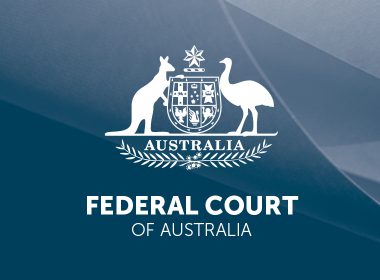Key decisions
- Australia and New Zealand Banking Group Limited v State of Queensland [2020] FCA 1597
- Commonwealth Bank of Australia v State of Queensland, in the matter of Ginn [2016] FCA 1337
- BMW Australia Ltd v Brewster (2019) 94 ALJR 51; [2019] HCA 45
- Davaria Pty Limited v 7-Eleven Stores Pty Ltd [2020] FCAFC 183
- Brewster v BMW Australia Ltd [2020] NSWCA 272
- ASIC v Mitchell (No 3) [2020] FCA 1604
BANKRUPTCY
Bankruptcy Act 1966 (Cth) s 133 – application by mortgagee for vesting in bankrupts’ property in mortgagee for the purposes of sale – effect of disclaimer by trustee in bankruptcy
In Australia and New Zealand Banking Group Limited v State of Queensland [2020] FCA 1597 (30 July 2020), Logan J considered an application by the Australia and New Zealand Banking Group Limited (the ‘Bank’) pursuant to ss 133(9) and 133(10) of the Bankruptcy Act 1966 (Cth) (the ‘Act’) for the vesting of property for it to exercise of a power of sale under a mortgage.
Background: In 2016, Mr & Mrs Ritchie borrowed the principal sum of $88,000 from the Bank. That borrowing was secured by a registered mortgage over land at Berserker, Queensland (the ‘Property’), owned by Mr & Mrs Ritchie. On 23 December 2019, Mr & Mrs Ritchie respectively presented a debtor’s petition under the Act. At that time, they were in default under the terms of their loan agreement and mortgage. On 24 February 2020, the Bank sent Mr & Mrs Ritchie a notice of default under the loan agreement and mortgage. The following day, the Bank also sent a copy of that notice of default to the Trustee in Bankruptcy (the ‘Trustee’). On or about 26 February 2020, the Trustee disclaimed the Berserker Property pursuant to s 133(1) of the Act.
The Bank made application to the Court under s 133(9) and s 133(10) for the vesting of the Property for the purposes of it exercising its power of sale. Section 133(9) relevantly provides that the Court may, on application by a person either claiming an interest in, or being under a liability not discharged by the Act in respect of, disclaimed property, make an order, on such terms that it considers just and equitable, for the vesting of the property in, or delivery of the property to, a person entitled to it.
Decision: The Court commenced its consideration of the issue by noting the observations made by Edelman J, when a member of the Court in Commonwealth Bank of Australia v State of Queensland, in the matter of Ginn [2016] FCA 1337, that there are two schools of thought, on the authorities, as to the effect of a disclaimer in respect of land held in fee simple. First, the disclaimer operates to determine all the trustee’s title and interests in relation to the bankrupt’s property. However, if the trustee’s title has not been registered then the only title which is determined is the equitable title of the trustee (recognised by s 58(2) of the Act). This might mean that the bankrupt remained the holder of a notional legal title and no escheat or reversion of property to the Crown would occur.
The High Court, in the present case, reasoned … that, consistent with the objects of the RPA, it would be necessary to have all of the lots benefiting from a restrictive covenant, in a common building scheme, identified on a certificate of title: ‘Such identification ensures that a potential purchaser is able to make fully informed decisions in relation to the concerned land’.
Secondly, and what appears to be the dominant view in the authorities, that s 133(2) of the Act determines all rights and interests of the bankrupt in respect of the property disclaimed, being the trustee’s equitable title. The trustee therefore disclaims all of the bankrupt’s rights including those rights which arise from being the registered owner.
On any view, a pre-existing charge is not extinguished. A fee simple interest remains subject to a charge even after disclaimer and escheat. Ultimately, the Court found it unnecessary for the purposes of this case to finally resolve the precise effect of disclaimer in relation to the interest in the land assumed by the Crown because the Bank had a pre-existing charge in the form of a registered mortgage. In the circumstances, the Bank, as mortgagee, had an interest in the title to the Property and, default having been established, it was appropriate to make orders vesting the Property in the Bank for the purposes of its realisation pursuant to the exercise of a power of sale.
REPRESENTATIVE PROCEEDINGS
Federal Court’s power to make a ‘common fund order’ upon the conclusion of the proceeding – whether precluded by BMW Australia Ltd v Brewster
In general terms, a common fund order (‘CFO’) is a court order which obliges all group members in a class action to pay their proportionate share of a litigation funder’s commission out of the proceeds of a judgment or settlement, whether or not the group members have entered into a funding agreement directly with the funder.
In March 2019, the High Court had held that, in representative proceedings, the Federal Court and NSW Court of Appeal (under s 33ZF of the Federal Court of Australia Act 1976 (Cth) (‘FCA Act’) and s 183 of the Civil Procedure Act 2005 (NSW) (‘CPA’) respectively) did not have the power to make CFOs at an early stage of a class action: BMW Australia Ltd v Brewster (2019) 94 ALJR 51; [2019] HCA 45 (‘BMW v Brewster’). Following the High Court’s decision, there was debate and uncertainty as to whether the Courts could make CFOs at the stage of settlement and/or judgment.
On 3 November 2020, the Full Federal Court in Davaria Pty Limited v 7-Eleven Stores Pty Ltd [2020] FCAFC 183 (‘Davaria’) declined to answer the question reserved to it under s 25(6) of the Federal Court of Australia Act 1976 (Cth) (‘FCA Act’) in representative class action proceedings between 7-Eleven and its franchisees, namely, whether the Federal Court has power pursuant to ss 33V, 33Z or 33ZF of the FCA Act or otherwise to make a CFO upon the settlement or determination of the proceedings (the ‘Question’).
Prior to the mediation of the matter, 7-Eleven had applied for the Question to be referred to the Full Court, or alternatively for a declaration that the Federal Court does not have power pursuant to ss 33V, 33Z or 33ZF of the FCA Act or otherwise to make a CFO upon the settlement or determination of the proceedings.
The Full Court essentially declined to determine the Question on the basis that it was premature to do so. Any declaratory relief must be directed to the determination of legal controversies and not to answering abstract or hypothetical questions. Notwithstanding that it might be open to conclude that the answer to the Question would assist the parties in participating in the mediation on a correct legal foundation, the answer to the question of what is the correct legal foundation should take place by reference to concrete facts on an application for a CFO upon settlement (Davaria at [67]). A common fund could ultimately come into existence on settlement in a number of different ways (at [71]).
The Full Court also held that, as a matter of principle, no dicta of a majority of judges can be identified in the High Court’s decision in BMW v Brewster for the proposition that there is a want of power to make CFOs at the stage of settlement and/or judgment (Davaria [41]). The Full Court also noted that this conclusion was fortified by the reasoning of the Court of Appeal in Brewster v BMW Australia Ltd [2020] NSWCA 272 which (only days earlier) had reached a similar conclusion in relation to the equivalent NSW provisions.
CORPORATIONS
Pecuniary penalty – breach of director’s duties – contraventions of s 180(1) of the Corporations Act 2001 (Cth) – meaning of ‘serious’
Background: On 31 July 2020, the Court found that Mr Mitchell, a director of Tennis Australia (‘TA‘), had contravened s 180(1) of the Corporations Act 2001 (Cth) (the ‘Act’) in his dealings with Mr Bruce McWilliam, Group Chief Legal and Commercial Director of Seven Network (Operations) Ltd (‘Seven’) relating to negotiations with Seven concerning the renewal of the domestic broadcast rights for tennis (see ASIC v Mitchell (No 2) (2020) 382 ALR 425; [2020] FCA 1098). Mr Mitchell’s conduct did not cause harm to TA nor was it motivated by anything other than his perception that he thought that it was in the interests of TA that a deal with Seven should be consummated sooner rather than later.
In ASIC v Mitchell (No 3) [2020] FCA 1604 (4 November 2020), the Court considered whether it should make declarations concerning Mr Mitchell’s contravention and, if so, the factors relevant to assessing penalty and the appropriate penalty that should apply.
Threshold issue: A threshold issue was the consideration of the meaning of ‘serious’ for the purposes of s 1317G(1)(b)(iii) of the Act in circumstances where the Court’s jurisdiction to order the payment of a pecuniary penalty is enlivened only if both a declaration of contravention has been made and, relevantly, the contravention either materially prejudices the interests of the corporation (s 1317G(1)(b)(i) of the Act) or is serious (s 1317G(1)(b)(iii) of the Act).
Determination: Having found that it was appropriate to make declarations pursuant to s 1317E(1) of the Act that Mr Mitchell contravened s 180(1) in his capacity as a director of TA but that the contraventions did not satisfy the limb of materially prejudicing the interests of TA (s 1317G(1)(b)(i)), the Court considered whether the contraventions were serious (s 1317G(1)(b)(iii)). As to what is meant by a contravention being ‘serious’ within the meaning of s 1317G(1)(b)(iii), the Court said:
- One can well understand why various substitutes if not purported synonyms for ‘serious’ have been proffered by judges such as ‘grave’, ‘not trifling’, ‘weighty’, ‘considerable’, ‘important’ or ‘significant’;
- Seriousness must focus on the particular contravention. It is not appropriate to look at the cumulative consequences of all contraventions;
- ‘[S]erious’ should bear its ordinary or plain meaning, which is defined in the Oxford English Dictionary as ‘weighty, grave; important, significant, of great consequence’ but omitting ‘significant’ which is sometimes used simply to mean ‘real’ or ‘of substance’ which sets the bar too low;
- The absence of establishing deliberateness to harm the corporation or prefer one’s own interest, the absence of dishonesty or the absence of impropriety is irrelevant to whether the contravention was ‘serious’. The seriousness of conduct amounting to a contravention of s 180(1) cannot be reduced by reference to elements irrelevant to the section;
- (e) The seriousness of the contravention is to be determined by reference to the degree by which the officer of the corporation concerned has departed from the requisite standard of care and diligence; and
- (f) The fact that no harm may have been caused by a contravention or that a director’s conduct may have been in the bona fide belief that he was acting in a corporation’s interests are matters relevant to the quantum of penalty rather than to whether the contraventions were ‘serious’.
The Court accordingly concluded that its power to order a pecuniary penalty had been enlivened. Having made the appropriate declarations and considered the objectives of specific and general deterrence, the Court ordered that Mr Mitchell pay a pecuniary penalty of $80,000.

Anthony Lo Surdo SC is a barrister, arbitrator and mediator in 12 Wentworth Selborne Chambers, Sydney; Lonsdale Chambers, Melbourne; and Outer Temple Chambers, London, Abu Dhabi and Dubai.
Theresa Power is a barrister in 12 Wentworth Selborne Chambers, Sydney.



